
Find Help
More Items From Ergsy search
-
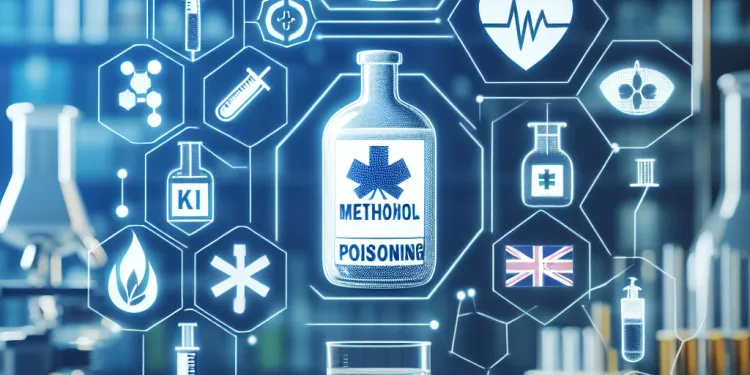
What is methanol poisoning?
Relevance: 100%
-

Can methanol poisoning be treated?
Relevance: 97%
-

What are the symptoms of methanol poisoning?
Relevance: 96%
-

How does methanol poisoning differ from ethanol poisoning?
Relevance: 93%
-

Is dialysis used in methanol poisoning cases?
Relevance: 93%
-

How can methanol poisoning be prevented?
Relevance: 91%
-

Can methanol poisoning cause permanent damage?
Relevance: 90%
-

What should you do if you suspect methanol poisoning?
Relevance: 89%
-

How quickly do symptoms of methanol poisoning appear?
Relevance: 87%
-

What is the role of ethanol in the treatment of methanol poisoning?
Relevance: 74%
-

Why is methanol dangerous to humans?
Relevance: 73%
-

Is there a specific test to diagnose methanol poisoning?
Relevance: 66%
-

What types of visual disturbances are associated with methanol poisoning?
Relevance: 60%
-

Why is methanol sometimes found in illegally produced alcohol?
Relevance: 60%
-

What are the differences between methanol and ethanol?
Relevance: 54%
-

What is fomepizole and how does it work?
Relevance: 50%
-
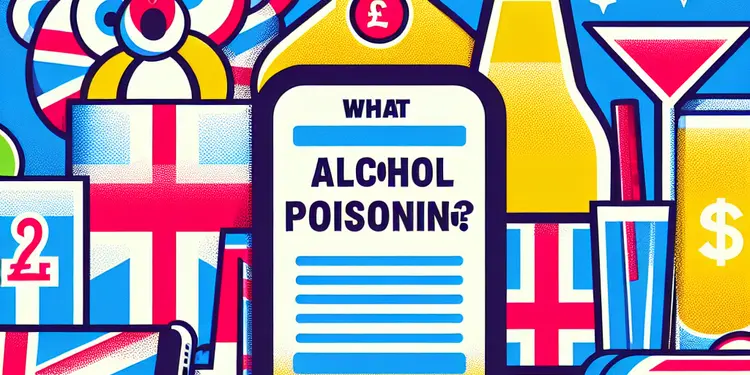
What is alcohol poisoning?
Relevance: 48%
-

What are the symptoms of Bacillus cereus food poisoning?
Relevance: 41%
-

Are there any long-term effects of rice food poisoning?
Relevance: 39%
-
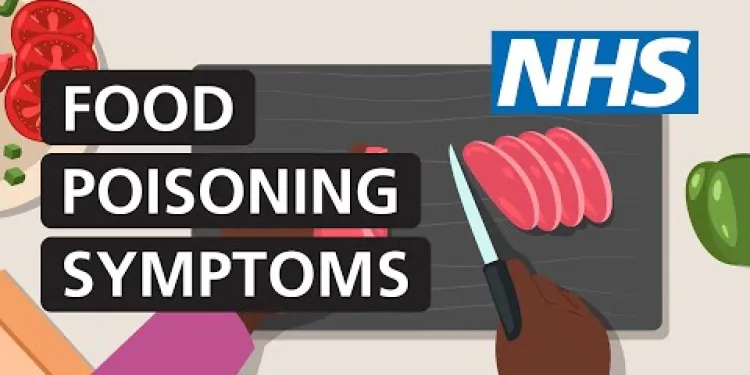
How to tell if you have food poisoning (symptoms) | NHS
Relevance: 39%
-

What first aid measures can be taken in case of methanol exposure?
Relevance: 38%
-

Why is rice particularly risky for food poisoning?
Relevance: 38%
-

What should I do if I suspect food poisoning from rice?
Relevance: 36%
-

Blood Poisoning - Sepsis
Relevance: 34%
-

Are there any poisonous spiders in the UK?
Relevance: 34%
-
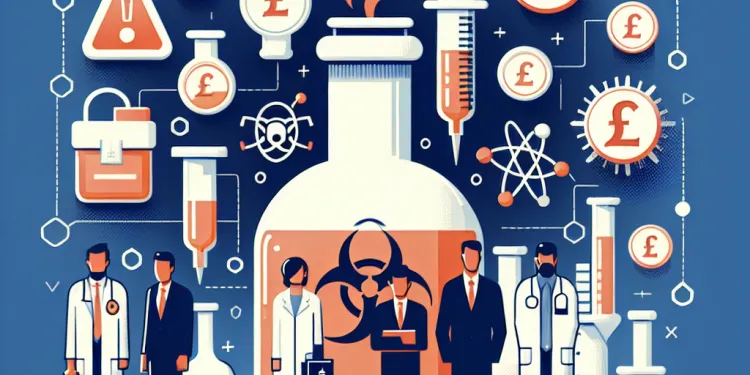
What professions are at higher risk of methanol exposure?
Relevance: 32%
-
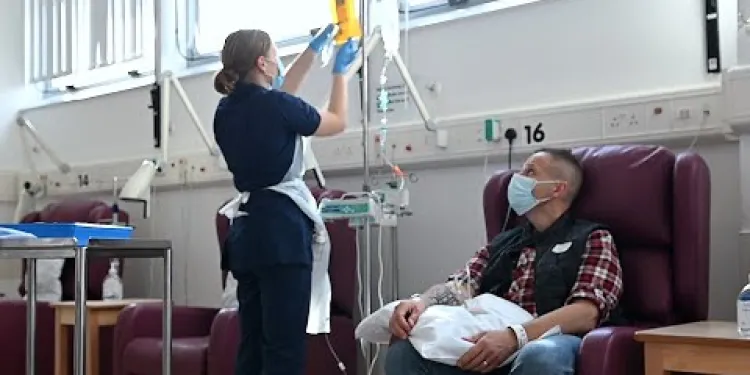
Having chemotherapy and other treatments in the Day Treatment Unit
Relevance: 21%
-

Is there a treatment for measles?
Relevance: 21%
-

Is there a treatment for measles?
Relevance: 21%
-

Are chiropractic treatments safe?
Relevance: 20%
-

Is Botox treatment expensive?
Relevance: 20%
-
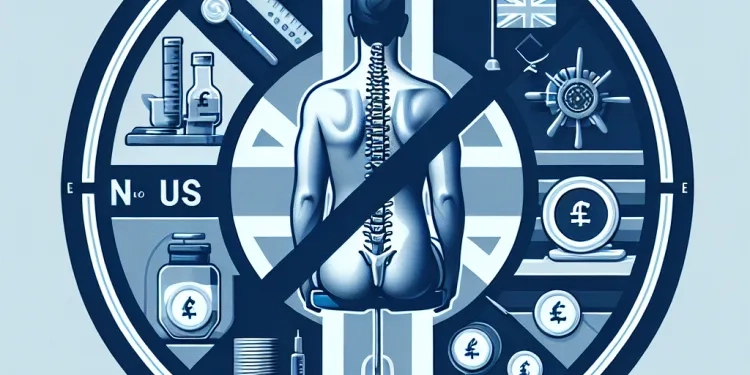
Are chiropractic treatments painful?
Relevance: 20%
-

What is the treatment for appendicitis?
Relevance: 20%
-

Eating disorders: treatment
Relevance: 20%
-

Is Paillon treatment a form of chemotherapy?
Relevance: 20%
-

What is Paillon treatment for cancer?
Relevance: 20%
-

Who developed the Paillon treatment?
Relevance: 20%
-
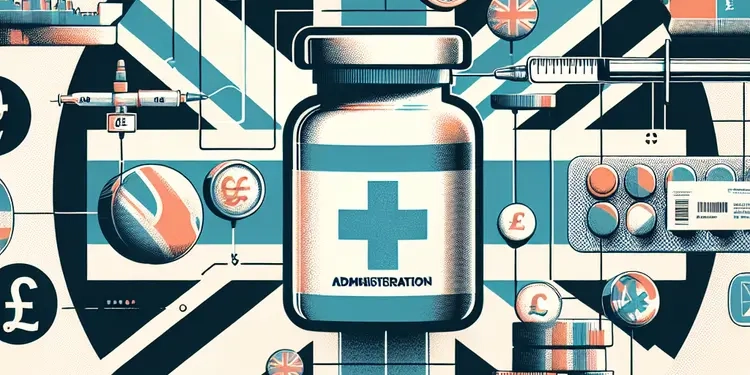
How is Paillon treatment administered?
Relevance: 20%
-

BSL - Treatments for insomnia
Relevance: 20%
-

Is Paillon treatment FDA approved?
Relevance: 19%
Understanding Methanol Poisoning
Methanol poisoning is a serious medical condition that occurs when methanol, a toxic alcohol found in various industrial and household products, is ingested. Even small amounts of methanol can be extremely harmful to health, leading to symptoms such as headache, dizziness, nausea, lack of coordination, and in severe cases, blindness, organ failure, or death. Due to its dangerous nature, it is crucial to understand the potential treatments available for methanol poisoning.
Recognition and Early Response
Quick recognition and immediate response are critical in the treatment of methanol poisoning. If methanol ingestion is suspected, it is vital to seek medical attention immediately. Initial symptoms may mimic those of ethanol intoxication, but methanol's toxic effects take several hours to manifest as the body metabolizes it to formic acid, which is highly toxic. Early intervention can prevent severe complications and improve the patient's prognosis.
Hospital-Based Treatments
Once at a medical facility, healthcare professionals will typically perform several interventions to treat methanol poisoning effectively. The primary goal is to inhibit the conversion of methanol to toxic metabolites and facilitate its elimination from the body. This often involves the use of antidotes like fomepizole or ethanol.
Fomepizole is the preferred antidote as it directly inhibits the enzyme alcohol dehydrogenase, preventing the formation of toxic byproducts. In its absence, ethanol can be administered because it competes with methanol for the same enzyme, thereby slowing its metabolism. Both treatments have been proven effective in reducing the severity of methanol poisoning.
Additional Treatment Options
In some cases, hemodialysis might be necessary, particularly if there was a large ingestion or if the patient presents with severe symptoms or high levels of methanol in their blood. Hemodialysis is effective in rapidly removing methanol and formic acid from the bloodstream, correcting metabolic acidosis, and reducing the risk of damage to organs and the nervous system.
Supportive care is also critical, including the administration of intravenous fluids, electrolytes, and bicarbonate to manage metabolic acidosis. Continuous monitoring and supportive treatments ensure that complications are managed as they arise.
Prevention and Awareness
While treatment options for methanol poisoning are available, prevention remains better than cure. It is essential to store methanol-containing products safely and educate individuals about the dangers of methanol ingestion. In the UK, as in many other places, raising public awareness about the risks of methanol and ensuring that alcohol used for consumption is from legitimate sources, free from dangerous adulterants, is key in preventing poisoning.
In conclusion, methanol poisoning can be treated effectively if medical help is sought promptly. With modern medical interventions and awareness, the risks associated with methanol exposure can be significantly mitigated.
Understanding Methanol Poisoning
Methanol poisoning is when someone gets very sick from a chemical called methanol. Methanol is a type of alcohol found in things like cleaning products and some fuels. It is very dangerous. Even a little bit can make you really sick. People might get headaches, feel dizzy, or feel sick in the stomach. It can even make someone blind or cause death if not treated. It is important to know how to help someone if they get methanol poisoning.
Recognition and Early Response
If you think someone has drunk methanol, it is important to get a doctor right away. Methanol poisoning can look like being drunk from regular alcohol at first, but it is much more dangerous. As the body breaks it down, it turns into a very toxic substance. Getting help early can stop serious problems and help the person get better.
Hospital-Based Treatments
When a person with methanol poisoning gets to the hospital, doctors will help them in different ways. The main goal is to stop methanol from turning into more dangerous chemicals in the body. Doctors may give treatments like fomepizole or ethanol.
Fomepizole is a medicine that stops methanol from changing into bad chemicals. If fomepizole is not available, doctors might use ethanol because it slows down how methanol is broken down in the body. Both methods work well to reduce the harm from methanol.
Additional Treatment Options
Sometimes, if someone has taken a lot of methanol or is very sick, they might need a treatment called hemodialysis. Hemodialysis is a special process that cleans the blood by taking out methanol and its harmful byproducts. It helps prevent damage to the organs.
Other helpful care includes giving fluids and medicines to keep the body in balance. Doctors will closely watch the person and treat any problems that come up.
Prevention and Awareness
It is better to stop methanol poisoning before it happens. Keep products with methanol out of reach of children and teach people about the dangers of drinking it. In places like the UK, it is important to make sure alcohol people drink is safe and from trusted sources. Raising awareness about methanol risks helps prevent poisoning.
In summary, methanol poisoning can be treated if help is gotten quickly. Modern treatments and knowing the risks can greatly reduce the dangers of methanol exposure.
Frequently Asked Questions
What is methanol poisoning?
Methanol poisoning occurs when a person ingests, inhales, or absorbs methanol, a type of alcohol that is toxic and not meant for consumption.
Can methanol poisoning be treated?
Yes, methanol poisoning can be treated if it is identified early and proper medical care is provided promptly.
What are the first steps in treating methanol poisoning?
The first steps typically involve stabilizing the patient, administering an antidote, and removing methanol from the body.
What is the antidote for methanol poisoning?
The antidotes for methanol poisoning are fomepizole and ethanol. They work by inhibiting the enzyme alcohol dehydrogenase, preventing methanol from being metabolized into toxic byproducts.
What role does ethanol play in treating methanol poisoning?
Ethanol competes with methanol for the enzyme alcohol dehydrogenase, slowing the conversion of methanol to its toxic metabolites.
How is fomepizole different from ethanol in treating methanol poisoning?
Fomepizole specifically inhibits alcohol dehydrogenase without causing intoxication and has fewer side effects compared to ethanol.
Is dialysis used in methanol poisoning treatment?
Yes, dialysis can be used to remove methanol and its toxic metabolites from the bloodstream, especially in severe cases.
What are the symptoms of methanol poisoning?
Symptoms include headache, dizziness, nausea, vomiting, visual disturbances, abdominal pain, and in severe cases, coma or death.
How quickly should methanol poisoning be treated?
Methanol poisoning should be treated as soon as possible after exposure to minimize harm and prevent serious complications.
Can methanol poisoning lead to blindness?
Yes, methanol poisoning can cause blindness due to the toxic effect of its metabolites on the optic nerve.
What is the prognosis for someone with methanol poisoning?
The prognosis depends on the amount of methanol ingested and how quickly treatment begins. Early treatment can lead to full recovery, but delayed treatment can result in severe harm or death.
Can methanol poisoning occur through skin contact?
Yes, methanol can be absorbed through the skin, although poisoning is more commonly due to ingestion or inhalation.
Why is methanol poisoning dangerous?
Methanol is metabolized into formaldehyde and formic acid, which can cause metabolic acidosis and damage to organs, particularly the eyes.
How is methanol ingestion confirmed?
Methanol ingestion is confirmed through blood tests that measure methanol levels and acid-base balance.
Can household products lead to methanol poisoning?
Yes, products like windshield wiper fluid or antifreeze contain methanol and can cause poisoning if ingested.
Are there long-term effects of methanol poisoning?
Long-term effects can include visual impairment, neurological damage, or other organ damage if treatment is delayed or ineffective.
Who is at risk of methanol poisoning?
Individuals who accidentally or intentionally ingest methanol-containing substances are at risk, including those with access to industrial or household methanol products.
What should you do if you suspect someone has methanol poisoning?
Seek immediate medical attention by calling emergency services and avoid inducing vomiting, as it can worsen the situation.
Can methanol be safely consumed in any amount?
No, methanol should never be consumed as it is highly toxic even in small quantities.
Can methanol poisoning be prevented?
Methanol poisoning can be prevented by properly labeling and storing products, keeping them out of reach of children, and using safer alternatives when possible.
What is methanol poisoning?
Methanol is a type of alcohol. It is very dangerous if people drink it.
If someone drinks methanol, it can make them very sick. This is called methanol poisoning.
If you think someone has methanol poisoning, get help from a doctor straight away.
To learn more, you can use things like pictures or videos to help understand better.
Methanol poisoning happens when someone drinks, breathes in, or gets methanol on their skin. Methanol is a harmful type of alcohol that you should not drink.
Can methanol poisoning be treated?
Yes, methanol poisoning can be treated. If someone drinks methanol, they need help from a doctor. Doctors can give a special medicine to help. It's important to go to the hospital quickly.
If you need help reading, you can use audiobooks or ask someone to read with you. Pictures can also help you understand better.
Yes, methanol poisoning can get better if doctors find it quickly and give the right treatment fast.
What do you do first if someone has methanol poisoning?
If you think someone drank methanol, call for help right away. Here’s what you can do:
- Call an ambulance or go to the hospital fast.
- Tell the doctor what the person drank.
- Do not make the person throw up.
Remember, getting help quickly is very important!
You can use pictures or ask someone to help you understand this better.
The first steps are:
1. Help the person feel better.
2. Give medicine to stop the methanol from hurting them.
3. Take the methanol out of their body.
What can help if someone drinks something dangerous like methanol?
If someone drinks methanol, they need help from a doctor. The doctor might give them a special medicine to make them better. It is important to get help quickly.
If you or someone you know has this problem, here are some things to do:
- Tell an adult right away.
- Call a doctor or go to the hospital.
- Do not wait. Getting help soon is very important.
For support, you can use tools like:
- Calling emergency services.
- Using a phone app to send alerts.
The treatments for methanol poisoning are fomepizole and ethanol. These medicines help by stopping the body from turning methanol into harmful stuff.
Tips to help understand:
- Use a pointer or finger to follow along while reading.
- Ask someone to read with you and explain parts that are hard to understand.
- Look for pictures or videos about methanol poisoning to learn more.
- Take breaks if you start to feel tired or confused.
How can ethanol help when someone is poisoned by methanol?
Ethanol and methanol are both types of alcohol. They both want to use the same enzyme called alcohol dehydrogenase. Ethanol can slow down methanol from changing into harmful substances.
How is fomepizole different from ethanol in treating methanol poisoning?
When someone is poisoned by methanol, doctors can use two medicines to help. These are called fomepizole and ethanol. Both help stop the poison from hurting the body.
Fomepizole: This medicine is made to stop methanol from causing harm quickly and safely.
Ethanol: This is a type of alcohol. It can also help, but it might have more side effects than fomepizole.
Supportive Tools: If reading is hard, try using a ruler under each line to help you follow the text. You can also ask someone to read it out loud with you.
Fomepizole helps stop a chemical in our bodies from working without making us feel drunk. It is safer and causes fewer problems than using alcohol for the same job.
Is dialysis used to treat methanol poisoning?
When someone drinks something dangerous like methanol, special treatments are needed.
Dialysis: This is a machine that helps clean the blood. It can take out bad stuff, like methanol, from the body.
If you or someone else has methanol poisoning, doctors might use dialysis to help. It’s important to get help from a doctor quickly.
Tools to Help Understand:
- Ask a doctor or nurse to explain more.
- Use pictures to understand what is happening.
- Watch videos that show how dialysis works.
Yes, dialysis can help clean methanol and its harmful parts from the blood. This is really helpful when someone is very sick.
What happens if someone drinks methanol?
If someone drinks methanol, their body can get sick. Here are some signs that show they might be sick:
- They could have a tummy ache.
- They might feel dizzy and confused.
- They could have trouble seeing clearly, like blurry eyes.
- They might feel very sleepy or tired.
- Sometimes, they might throw up.
If someone feels these things after drinking methanol, they need to see a doctor right away. Using picture cards or asking an adult for help can also be good ideas.
Signs that something is wrong can be:
- A headache. Your head might hurt.
- Dizziness. This can make you feel like you might fall.
- Nausea. Your tummy might feel upset.
- Vomiting. This is when you throw up.
- Trouble seeing. Things might look different or blurry.
- Belly pain. Your stomach might hurt a lot.
In very bad cases, you could go into a deep sleep and not wake up. This is called a coma. Or it might even lead to death.
If you find this hard to read, try using pictures to help understand. You can also ask someone you trust to read it with you.
How fast should you get help for methanol poisoning?
If someone gets sick from methanol, they need help quickly. This will stop them from getting hurt or very ill.
Can drinking methanol make you go blind?
Methanol can make you go blind. This happens because parts of methanol can hurt the eye nerve.
What happens if someone drinks methanol?
Methanol is very dangerous. Drinking it can make someone very sick. It can even be deadly.
If someone drinks methanol, they need to see a doctor right away. The doctor can give them medicine to help.
Some people who drink methanol might get better. Others might have problems that last a long time.
It's important to get help quickly if someone drinks methanol. Tell an adult or call a doctor if you think someone is in trouble.
For extra help, you can use pictures or videos to understand more about methanol. Ask someone to read this to you or explain it.
What happens next depends on how much methanol a person drinks and how fast they get help. If they get help quickly, they can get better. But if they wait too long, it can be very bad or even cause death.
Can methanol make you sick if it touches your skin?
Methanol is a type of alcohol. It can be dangerous.
If methanol touches your skin, it can make you sick.
Be careful with methanol. Wear gloves to protect your skin.
If methanol gets on your skin, wash it off with lots of water.
Yes, methanol can get into your body through your skin. But people usually get sick from methanol by drinking it or breathing it in.
Why is methanol poisoning dangerous?
Methanol poisoning is bad for you because it can make you very sick. Methanol is a type of alcohol that is not safe to drink. If someone drinks methanol, it can hurt their body and make them feel really bad.
Here is why methanol is dangerous:
- Methanol can be turned into a poison inside your body.
- This poison can hurt your eyes and make you not see well.
- It can also hurt parts of your body like your liver and kidneys.
If you think someone has drunk methanol, it is very important to get help from a doctor quickly. Calling emergency services or going to a hospital is the best thing to do.
To help everyone understand better, we can use pictures, simple words, and take our time to explain things clearly.
Methanol turns into chemicals called formaldehyde and formic acid in the body. These chemicals can make the blood too acidic, which is bad. It can also hurt parts of the body, like the eyes.
How do doctors know if someone drank methanol?
Doctors can find out if there is methanol in the blood by doing a blood test. This test checks how much methanol is there and also looks at the balance of acids and bases in the body.
Can things in your home make you sick from methanol?
Yes, products like windshield wiper fluid or antifreeze have a chemical called methanol. This chemical can make you sick if you drink it.
What happens if someone drinks methanol for a long time?
Drinking methanol is very dangerous.
If someone drinks methanol for a long time, it can make them very sick. It can hurt the body in many ways.
Signs of being sick from methanol are feeling tired, head hurting, tummy hurting, and seeing things that are not there.
If someone thinks they drank methanol, they should see a doctor or go to a hospital right away. It's very important to get help quickly.
People can use tools like picture cards or apps to help understand what happens when they feel unwell. Talking with someone who understands, like a family member or a friend, can also help.
If treatment is too late or doesn't work, it can harm your body for a long time. It might hurt your eyes, your brain, or other parts of your body.
Who can get sick from methanol?
People who drink things with methanol in them can get sick. This can happen if they do it by mistake or on purpose. This is especially true for people who can easily get these products from work or home.
What to do if you think someone has methanol poisoning
If someone is sick because they ate or drank something bad, call for help right away. Phone the emergency services for help. Do not try to make them throw up. This can make things worse.
Is it safe to drink even a little bit of methanol?
Drinking methanol is never safe. Methanol is very harmful to people. Even a small amount can make you very sick or cause death. If you need help understanding this, ask someone you trust.No, do not drink methanol. It is very poisonous, even if you drink a little bit.
How can we stop methanol poisoning?
To stop methanol poisoning, do these things:
- Put labels on products.
- Store products safely and keep them away from children.
- Use safer products if you can.
Useful Links
This website offers general information and is not a substitute for professional advice.
Always seek guidance from qualified professionals.
If you have any medical concerns or need urgent help, contact a healthcare professional or emergency services immediately.
Some of this content was generated with AI assistance. We’ve done our best to keep it accurate, helpful, and human-friendly.
- Ergsy carfully checks the information in the videos we provide here.
- Videos shown by Youtube after a video has completed, have NOT been reviewed by ERGSY.
- To view, click the arrow in centre of video.
- Most of the videos you find here will have subtitles and/or closed captions available.
- You may need to turn these on, and choose your preferred language.
- Go to the video you'd like to watch.
- If closed captions (CC) are available, settings will be visible on the bottom right of the video player.
- To turn on Captions, click settings .
- To turn off Captions, click settings again.
More Items From Ergsy search
-

What is methanol poisoning?
Relevance: 100%
-

Can methanol poisoning be treated?
Relevance: 97%
-

What are the symptoms of methanol poisoning?
Relevance: 96%
-

How does methanol poisoning differ from ethanol poisoning?
Relevance: 93%
-

Is dialysis used in methanol poisoning cases?
Relevance: 93%
-

How can methanol poisoning be prevented?
Relevance: 91%
-

Can methanol poisoning cause permanent damage?
Relevance: 90%
-

What should you do if you suspect methanol poisoning?
Relevance: 89%
-

How quickly do symptoms of methanol poisoning appear?
Relevance: 87%
-

What is the role of ethanol in the treatment of methanol poisoning?
Relevance: 74%
-

Why is methanol dangerous to humans?
Relevance: 73%
-

Is there a specific test to diagnose methanol poisoning?
Relevance: 66%
-

What types of visual disturbances are associated with methanol poisoning?
Relevance: 60%
-

Why is methanol sometimes found in illegally produced alcohol?
Relevance: 60%
-

What are the differences between methanol and ethanol?
Relevance: 54%
-

What is fomepizole and how does it work?
Relevance: 50%
-

What is alcohol poisoning?
Relevance: 48%
-

What are the symptoms of Bacillus cereus food poisoning?
Relevance: 41%
-

Are there any long-term effects of rice food poisoning?
Relevance: 39%
-

How to tell if you have food poisoning (symptoms) | NHS
Relevance: 39%
-

What first aid measures can be taken in case of methanol exposure?
Relevance: 38%
-

Why is rice particularly risky for food poisoning?
Relevance: 38%
-

What should I do if I suspect food poisoning from rice?
Relevance: 36%
-

Blood Poisoning - Sepsis
Relevance: 34%
-

Are there any poisonous spiders in the UK?
Relevance: 34%
-

What professions are at higher risk of methanol exposure?
Relevance: 32%
-

Having chemotherapy and other treatments in the Day Treatment Unit
Relevance: 21%
-

Is there a treatment for measles?
Relevance: 21%
-

Is there a treatment for measles?
Relevance: 21%
-

Are chiropractic treatments safe?
Relevance: 20%
-

Is Botox treatment expensive?
Relevance: 20%
-

Are chiropractic treatments painful?
Relevance: 20%
-

What is the treatment for appendicitis?
Relevance: 20%
-

Eating disorders: treatment
Relevance: 20%
-

Is Paillon treatment a form of chemotherapy?
Relevance: 20%
-

What is Paillon treatment for cancer?
Relevance: 20%
-

Who developed the Paillon treatment?
Relevance: 20%
-

How is Paillon treatment administered?
Relevance: 20%
-

BSL - Treatments for insomnia
Relevance: 20%
-

Is Paillon treatment FDA approved?
Relevance: 19%


